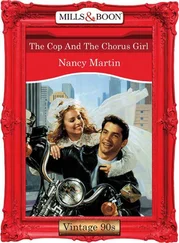Behind him, on the opposite counter, was a row of unlabeled bottles filled with water. He motioned us over with a sweep of his bony arm.
“Howdy, folks, come on in,” he said. “There’s plenty of room up here at the bar or you can help yourself to a table.”
He motioned in the general direction of the baby.
Carol lifted up the baby, sniffed the diaper, and made a face.
Monk gasped in horror. “Are you insane?”
“Did that old drunk wet herself again?” Peschel said. “Show her the door, will you please, Bev? She’s scaring away the customers.”
The way he said it, he might have been joking. But I had a feeling he wasn’t. For one thing, he called his daughter Bev and her name was Carol.
“I’m going to go change the baby and see if I can put her down for a nap,” Carol said.
“Take your time,” Stottlemeyer said to her, then sat down on one of the stools and smiled at Peschel. “I’d like a gin and tonic, please. My partner here will have a beer.”
“You can’t do that, Captain. You’re on duty and I don’t drink,” Monk said. “The only alcohol that passes my lips is in mouthwash and I spit it right out again.”
Stottlemeyer shushed Monk with a wave of his hand.
“Stuck with another rookie?” Peschel asked Stottlemeyer.
“Afraid so,” Stottlemeyer said.
Peschel took a coffee mug from amidst the baby bottles in the dish strainer, filled it up with water at the sink, and set it down in front of Monk, who seemed very confused.
“Drink up, Boy Scout,” Peschel said. “Put some hair on your chest.”
“I don’t want hair on my chest, among other places,” Monk said. “But this isn’t a beer. It’s tap water.”
Peschel grinned at Stottlemeyer. “The kid talks tough, but I don’t see him drinking it. You want a chaser with that?”
“He’s fine.” Stottlemeyer glared at Monk, trying to get him to play along. But make-believe wasn’t something Monk was good at.
I sat on the stool beside Monk, took a sip from his mug, and wiped away the imaginary foam from my lips. “Tastes fine to me.”
Peschel smiled. “Are you a working girl, honey?”
“No,” I said. “Just thirsty and lonely.”
“I’ve got nothing against your trade,” he said. “But whatever you score in here, I get a ten percent commission.”
He winked at me and moved down the counter to Stottlemeyer.
“How’s business?” the captain asked him.
“Slow.” Peschel reached for one of the unlabeled bottles of water behind him and poured a splash into a glass, then added a shot from another bottle. He put a napkin down in front of Stottlemeyer and set the glass on top of it. “Besides that drooling old drunk, hardly anybody has been in tonight.”
“So you called me down here for nothing,” Stottlemeyer said. “Except some refreshment.”
“I didn’t say that.” Peschel set a bowl of animal crackers in front of Stottlemeyer and leaned close. “Hy Conrad was in here the other night, shooting his mouth off. He was bragging about the Jewelry Mart smash-and-grab.”
“That’s small-time stuff. I’m in Homicide now.” Stottlemeyer nursed his drink as if it packed a punch. “That kind of news isn’t worth the cost of this watered-down booze you serve.”
“I’m just getting warmed up,” Peschel said. “What if I told you a fancy lady came in here looking for someone to kill her rich husband and make it look like an accident?”
“Why would she come to you?” Monk asked.
“I’ve been tending bar here for a long time,” Peschel said. “I know people who know people.”
“In a residential neighborhood?” Monk said. “That can’t be legal. Do you have a liquor license to be selling alcohol out of your home?”
“I was tending bar here while you were still sucking your mama’s teat,” Peschel said.
The blood drained out of Monk’s face. “I never did that. What a disgusting, horrible thing to say. Captain, arrest this man.”
Stottlemeyer motioned to me to get Monk out of there. I tugged Monk’s sleeve.
“I saw some crooked pictures in the hall,” I said. “Maybe you could straighten them.”
“I’d like to straighten him,” Monk said, as I hooked my arm in his and led him away. “He’s crazy.”
Peschel called after me, “Don’t forget my commission, sweetheart.”
Once we were in the entry hall, out of earshot, I said, “Mr. Peschel’s got Alzheimer’s or something like that. He thinks he’s still a bartender and that this is the tavern he used to own. You have to play along.”
“I don’t know how,” Monk said.
“Well, for one thing, you don’t contradict him.”
“Then how is he ever going to learn the truth?”
“He’s not, Mr. Monk. This is his truth.”
“How sad.” Monk glanced at him, then back to me. “At least he still knows who he is.”
That was when I realized why Stottlemeyer had dragged me here. It wasn’t to help him. It was for me, to put my troubles in perspective.
Peschel knew who he was-he had a vocation that defined him-but in every other way, he was lost. He didn’t know where he was in time or space or even who he was with. All he knew was that he was a bartender. But I’m sure he would have traded that certainty for all the other connections that made his life rich and that he didn’t have now. I had everything Peschel didn’t. So what did I have to complain about?
I guess Stottlemeyer was trying to tell me to be thankful for what I had. Maybe he was trying to tell me I was a self-indulgent whiner. Or was there an entirely different message for me in all of this?
Mr. Monk’s Life Is Changed Forever
While I was thinking about why Stottlemeyer had brought me to meet Peschel, Monk had worked his way down the hall, methodically straightening the pictures that I couldn’t tell were actually crooked.
I caught up with him passing the open door to a boy’s bedroom. I peeked inside. The boy had a bed that looked like a racing car, there were plastic racing tracks all over his floor, and every flat surface was covered with toy cars of different sizes. I pegged his age at about five or six, based on his toys and the pajamas that were on the floor.
The next room across was his sister’s. The walls were covered with pictures of cartoon characters and there were stuffed animals on the floor around her crib.
Carol stood at the changing table, closing the adhesive on the fresh disposable diaper that she’d put on her squirming baby.
“Your daughter is adorable,” I said. “It’s such a wonderful age.”
“Yes and no,” she said. “I am looking forward to the day when I can sleep again and wear blouses that don’t have puke on the shoulders.”
“At least she isn’t asking you if she can get a tattoo,” I said. “And you can cuddle her all you want without her trying to escape.”
“Would you like to hold her?”
I reached out my arms. “Desperately.”
“You should put on gloves first,” Monk said. “And a face mask. We all should.”
“Why?” Carol asked.
“The baby,” Monk said.
“The baby will be fine,” Carol said.
“It’s not the baby that I’m worried about,” Monk said. “It’s the rest of us.”
“I’ll risk it,” I said.
Carol lifted the baby into my arms. The child had that wonderful infant scent of talcum powder, baby formula, and pure lovableness that makes me instinctively feel warm all over. I looked into her bright eyes and playfully rubbed noses with her and was rewarded with a big, toothless smile.
Monk cringed and looked away, his gaze locking on something on the floor beside the changing table. He cocked his head from side to side, trying to figure out what he was looking at.
Читать дальше
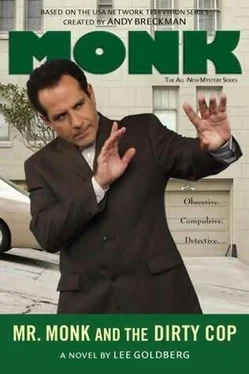


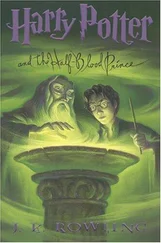
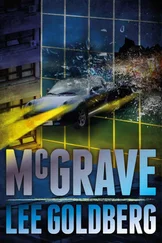
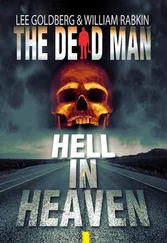

![О Генри - Фараон и хорал [The Cop and the Anthem]](/books/415669/o-genri-faraon-i-horal-the-cop-and-the-anthem-thumb.webp)




